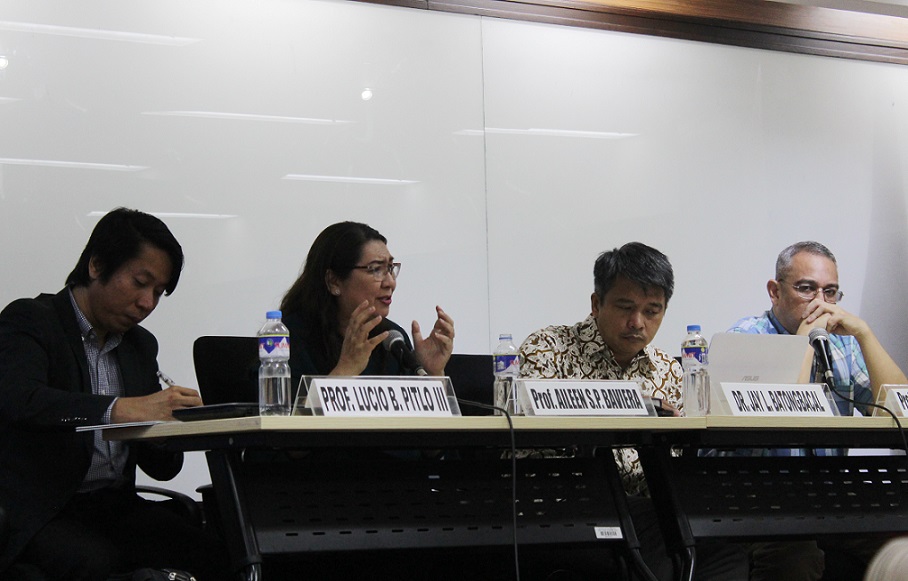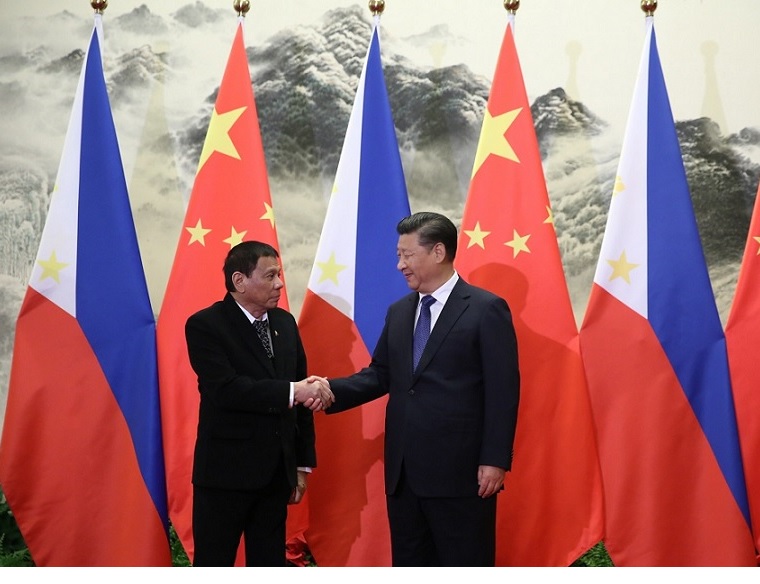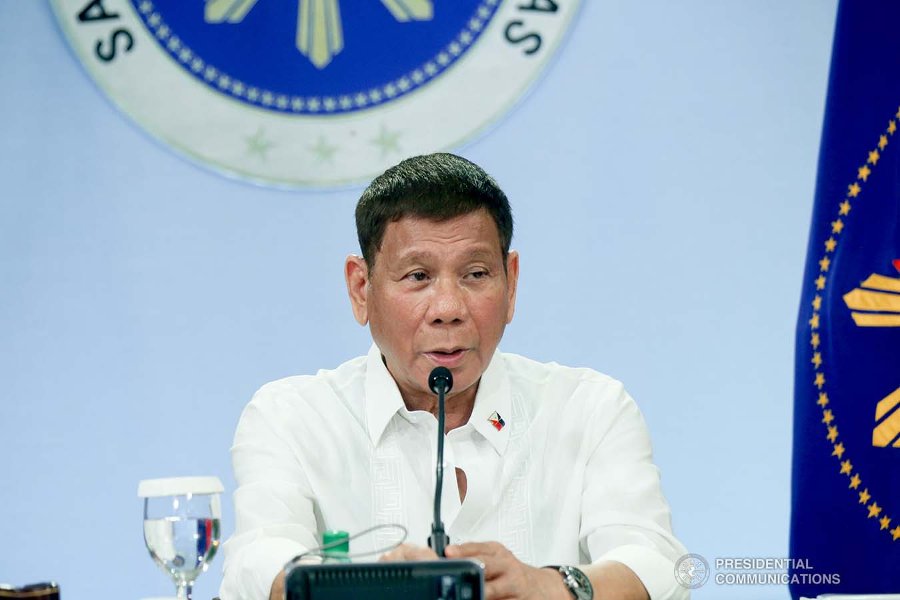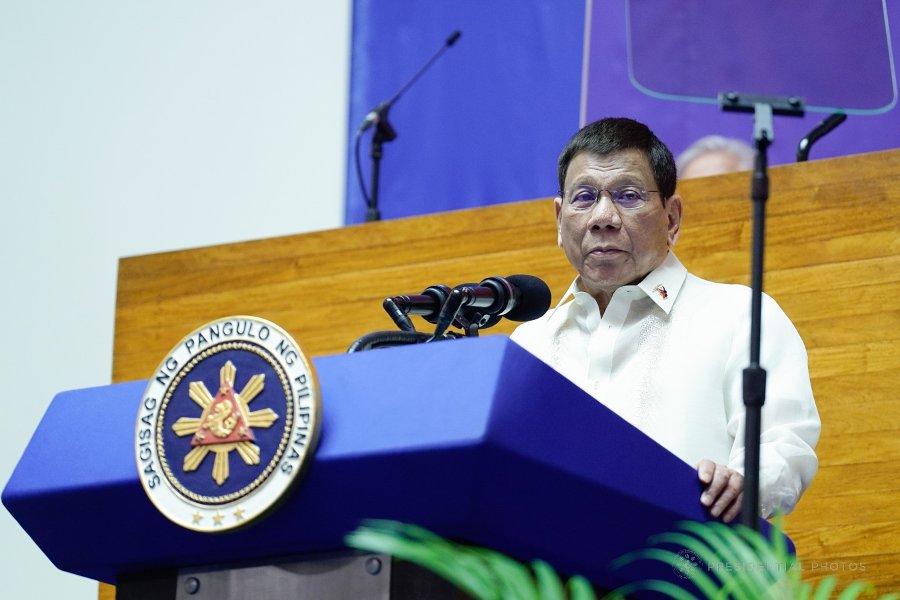
Experts weigh in on the prospects and challenges of the Philippines’ planned joint development with China.
The Philippine government insists that joint development with Beijing in the disputed waters of the South China Sea is the better option, but experts here believe Manila should instead stick to the letter and spirit of the Arbitral Court award last year.
Describing the maritime situation as “complex,” UP Asian studies professor Aileen Baviera, at a forum at the University of the Philippines on Sept 22, said the Philippines shouldn’t be rushing into a joint venture with China.
“This is a time to sort of hold our horses, push as much as we can still on the arbitration award, because this is what we have that’s clear and solid. So why bring in the joint development at this time?” she said at the forum, “Philippines and China in the year after the SCS Arbitration: Options and Obstacles for Joint Development.”
On July 12, 2016, the Arbitral Tribunal ruled China’s claim to the resources in South China Sea had “no legal basis,” rendering its nine-dash line invalid. (See PH wins: Arbitral court invalidates China’s 9-dash line)
President Rodrigo Duterte had set the decision aside and gave the go signal for Foreign Affairs Secretary Alan Peter Cayetano to pursue joint developments with China.
A joint development is an agreement between two or more states to jointly develop and exploit resources in a disputed area to avoid suspension of economic development, which happens when private companies hesitate to pursue development in a disputed area.
There is an underlying assumption that the countries acknowledge the other’s rights, UP Institute of Maritime Affairs and Law of the Sea director Jay Batongbacal said.
He added that if the dispute persists “despite the entitlements,” the Philippines may either insist on the award or ignore it.
“We’re faced with a choice of sticking to the rule of law basically and insisting on it…or taking the more pragmatic route of ignoring the award or at least not making it the basis for our subsequent explorations,” he said, noting that the latter “might be a hard pill to swallow.”
Senior Associate Justice Antonio Carpio had said on several occasions that the joint development violates the Constitution, saying areas in the country’s Exclusive Economic Zone “should be for the enjoyment and exploitation exclusively of Filipinos alone.”
Section 2, Article XII of the 1987 Constitution states that “the exploration, development, and utilization of natural resources shall be under the full control and supervision of the State.”
If joint development is to be pursued, Batongbacal said the provision “under the full control and supervision of the state” rule must be satisfied, and that only happens if a proper treaty is signed.
The document, he said, must be fixed with standard terms, and with clear and transparent basis between the government and a private contractor.
For the joint venture to be lawful, Lucio Pitlo III, a Chinese studies professor at the Ateneo de Manila University, said Chinese companies may be encouraged to partner with local companies.
He added commercial agreements are a better option, as such are easier to implement than those between governments, which are always under public scrutiny.
Batongbacal, however, noted that the Philippines should be transparent in its dealings, saying “the more opaque it is, the more it will make a controversy.”
Cooperation through agreements can only do so much, and will always be overturned when a state’s national interest comes in, UP political science professor Herman Kraft said.
“National interest will trump any desire to cooperate,” he added.
Baviera said joint developments have ramifications for both countries, particularly on how China agreeing to a joint development “already makes them vulnerable.”
She noted as an example how a past joint venture attempt between China and neighboring country Japan failed because the Chinese government was “severely criticized by the public,” thinking of Japan as an enemy.
Baviera said China’s security interests now focus on internal affairs like threats of terrorism, more than the maritime dispute.
“Internal issues are now preoccupying the leadership, so it’s not a good time to engage in any external adventure,” she said.
Kraft said the trust level has not changed, noting that there is still “more suspicion than trust” between China and the Philippines.
China still has to process the “apparent change of heart” of the Duterte administration, he added, which is far different from the stance taken by the previous government.
“So much of the heavy meetings is really all about confidence building,” Kraft said.


